
ROLEX SEA-DWELLER
Rolex created the Oyster Perpetual Sea-Dweller in 1967 to meet the challenge of prolonged underwater missions. Subsequently improved in close partnership with Comex (Compagnie Maritime d'Expertises) professionals, it is now waterproof to 1,220 metres (4,000 feet). The Sea-Dweller is specifically designed for saturation diving. Thanks to its helium escape valve, it can withstand decompression on ascent and master the return to the surface – the final phase of deep-sea exploration.
HIGH-TECHNOLOGY CERAMIC
Rolex played a pioneering role in the development of special ceramics for creating monobloc bezels and monobloc bezel inserts. Not only are these new materials extremely corrosion-resistant and virtually scratchproof, their colours are also of a rare intensity and unaffected by ultraviolet rays. On the new version of the Sea-Dweller, the unidirectional rotatable bezel is fitted with a 60-minute graduated cerachrom insert in black ceramic that allows divers to safely monitor their dive and decompression times. The moulded, recessed graduations and numerals are coated with yellow gold via PVD (physical vapour deposition). the bezel’s knurled edge offers excellent grip, to comfortably set dive time even when wearing gloves.
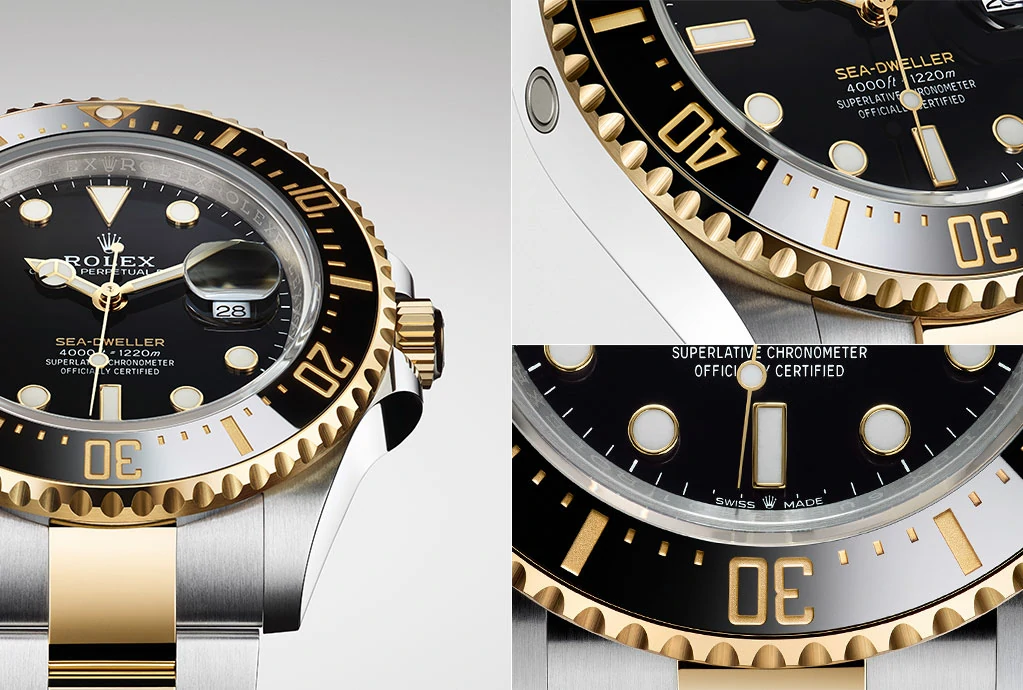
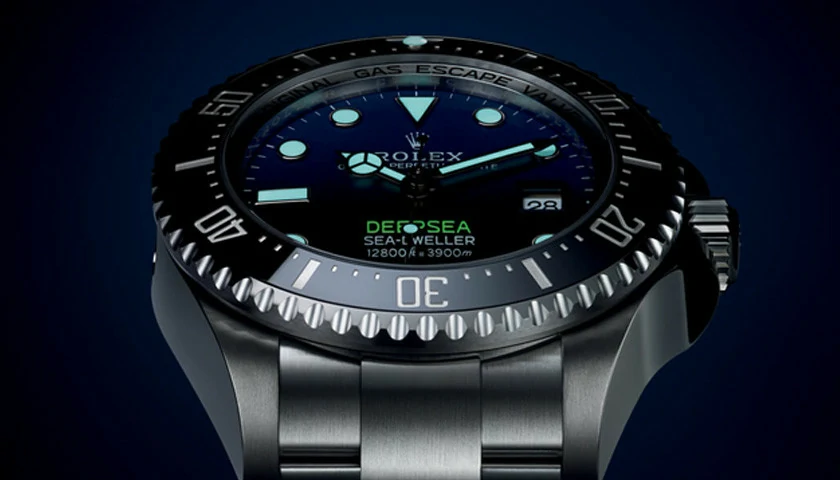
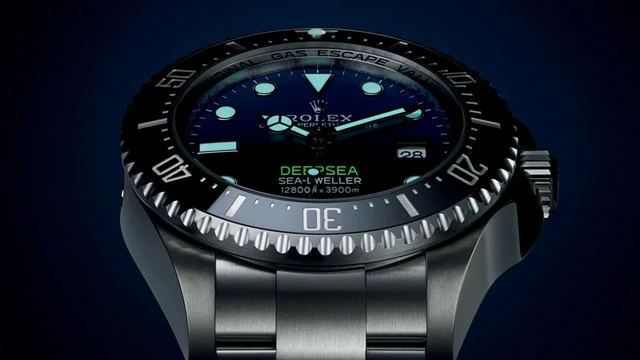
THE ROLEX DEEPSEA
The robust 44 mm case in Oystersteel, thick domed sapphire crystal and unidirectional rotatable bezel with a 60-minute graduated black Cerachrom insert exude the purposeful character of the Rolex Deepsea. It is the uncompromising divers’ watch, built for the most demanding underwater missions.
In 2014 Rolex announced the release of the Rolex Deepsea D-blue Dial, commemorating James Cameron’s historic solo dive to the bottom of the Mariana Trench, some 11,000 metres deep. From twilight blue to bottomless black, its two-colour gradient dial celebrates one man’s journey to the deepest place on Earth.
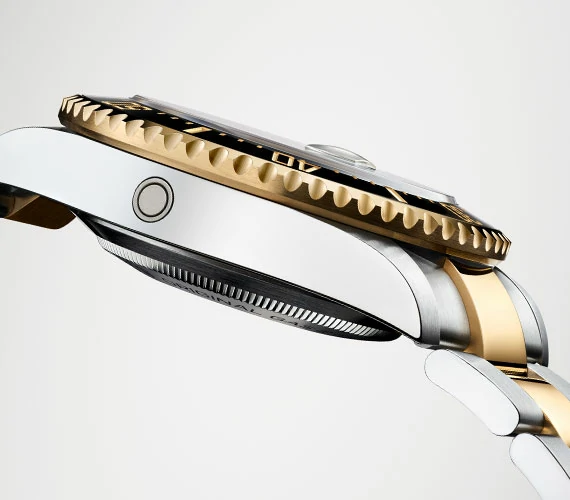

THE HELIUM ESCAPE VALVE
Before they return to the open air, professional divers heading for the surface after a deep saturation dive must spend time in a decompression chamber, where they breathe a gas mixture containing helium. The tiny molecules of helium, an extremely light gas, infiltrate into the watch. During decompression, the helium is unable to escape from the waterproof case quickly enough, creating a pressure differential that could force the crystal out of the watch case. Rolex engineers created a gas escape valve fitted with a spring: it opens when the difference in pressure between the inside and outside of the watch reaches 3 to 5 bars, allowing the helium to escape, thereby protecting the watch.
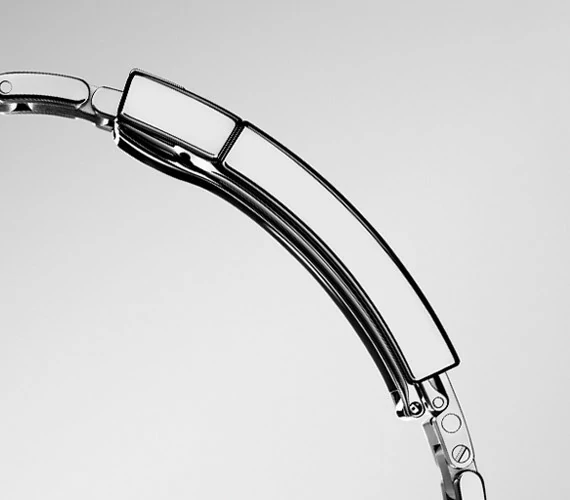
THE ROLEX GLIDELOCK EXTENSION SYSTEM
The patented Rolex Glidelock extension system allows divers to adjust the length of the bracelet for a secure and comfortable fit over a diving suit, without using any tools. A robust toothed panel under the clasp cover provides an extension of up to 20 mm in 2 mm increments.

THE ROLEX SEA-DWELLER
Rolex is introducing an Oyster Perpetual Sea-Dweller in a yellow Rolesor version, combining Oystersteel and 18 ct yellow gold. This new watch brings 18 ct yellow gold to the Sea-Dweller range for the first time. On its black dial, the name “Sea-Dweller” is inscribed in a yellow hue, echoing the colour of the 18 ct yellow gold. When the Sea-Dweller was updated in 2017, this lettering was in red, in reference to the original model.
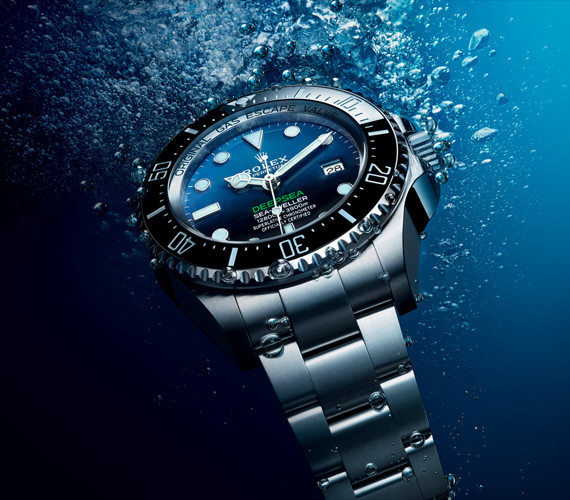

THE RINGLOCK SYSTEM
The Rolex Deepsea owes its exceptional strength, waterproofness and pressure resistance to the exclusive Ringlock system. This innovative case architecture patented by Rolex enables the watch to resist the massive pressure exerted by water at the depth of 3,900 metres (12,800 feet), equivalent to a weight of approximately 3 tonnes on the watch. Its construction is based on three elements: a nitrogen-alloyed steel central ring forms the backbone of the system, accompanied by a 5.5 mm‑thick, domed sapphire crystal and a case back in grade 5 titanium.
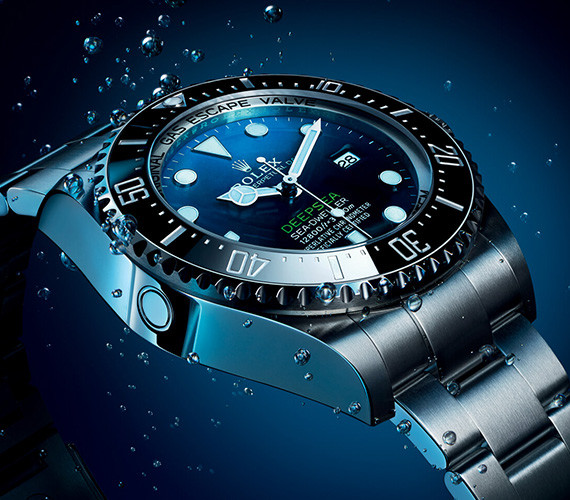
THE TITANIUM CASE BACK
The case architecture that enables the Rolex Deepsea to resist the colossal pressure exerted by water at great depths takes advantage of two surprising features. First of all, the strong titanium case back is almost imperceptibly flexible thanks to the natural qualities of the alloy, making it extremely resilient to such huge forces. Secondly, the water pressure itself forces the three core components of the Ringlock System, including the case back, tighter and tighter together as the depth increases, naturally reinforcing the hermetic seal of the case.





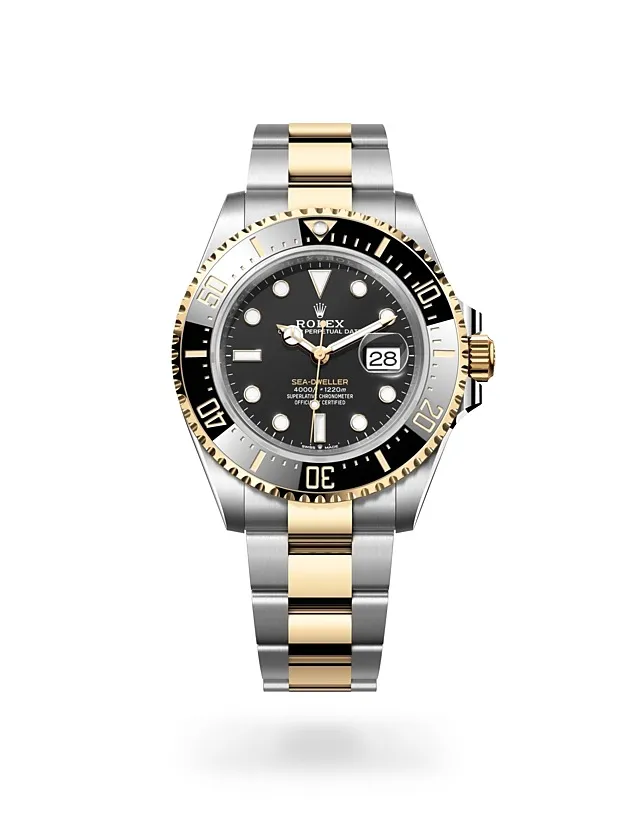
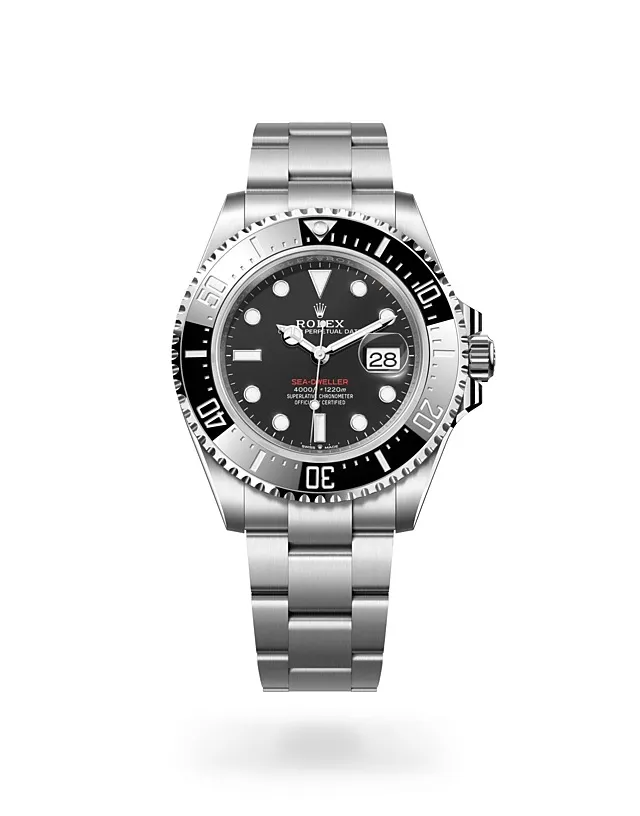

 Cosmograph Daytona
Cosmograph Daytona
 Datejust
Datejust
 Day-Date
Day-Date
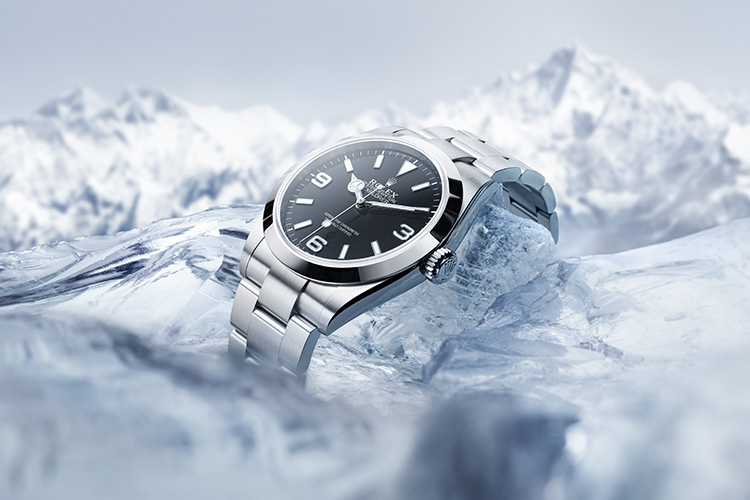 Explorer
Explorer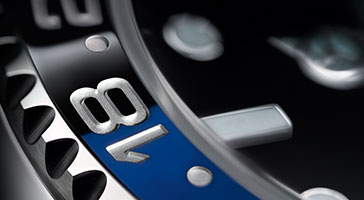
 GMT-Master II
GMT-Master II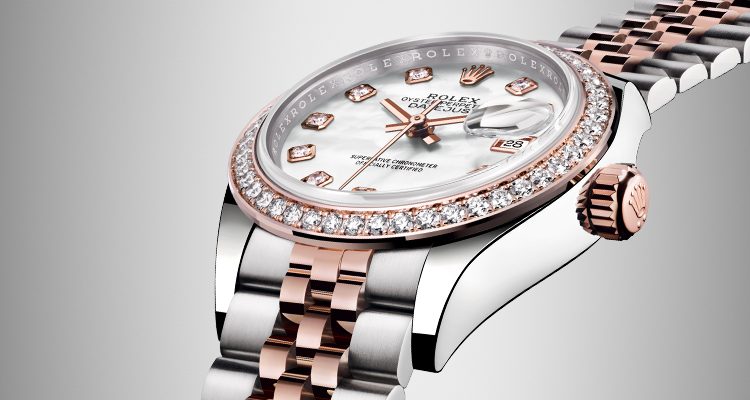
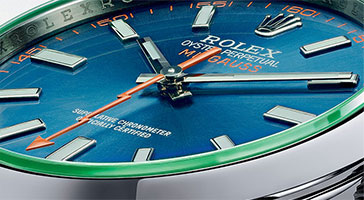
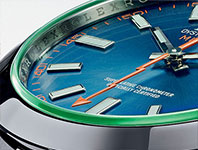 Milgauss
Milgauss
 Oyster Perpetual
Oyster Perpetual
 Sky-Dweller
Sky-Dweller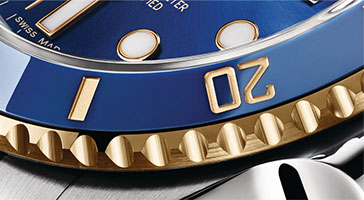
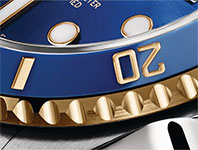 Submariner
Submariner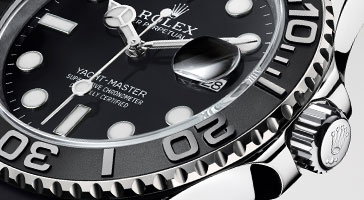
 Yacht-Master
Yacht-Master
